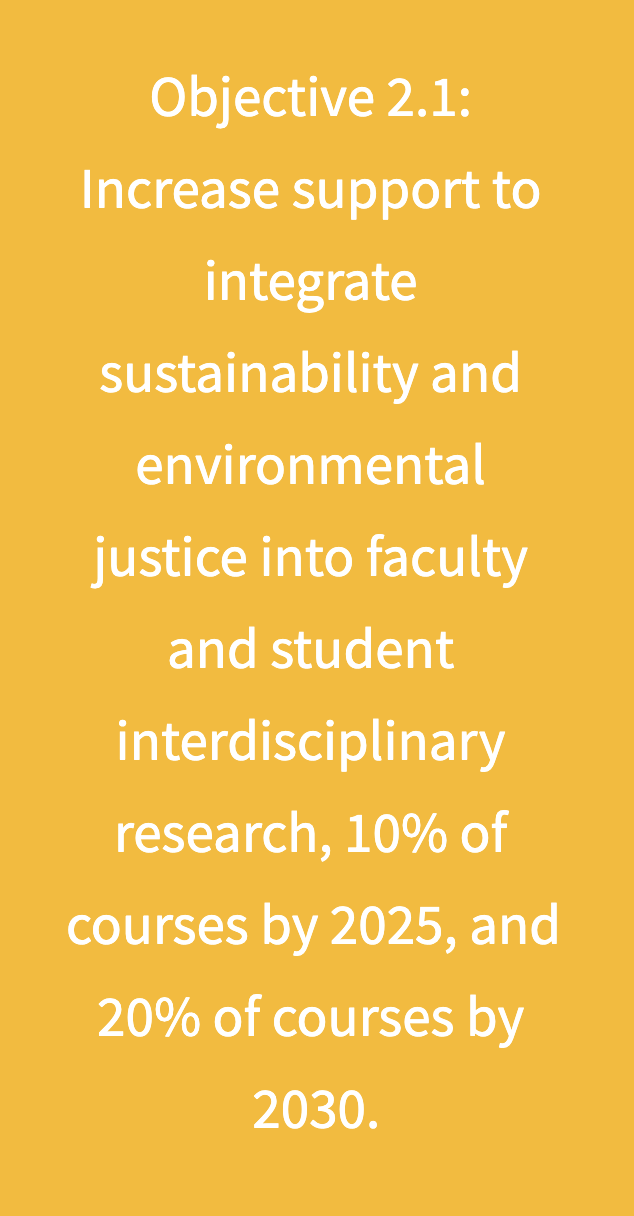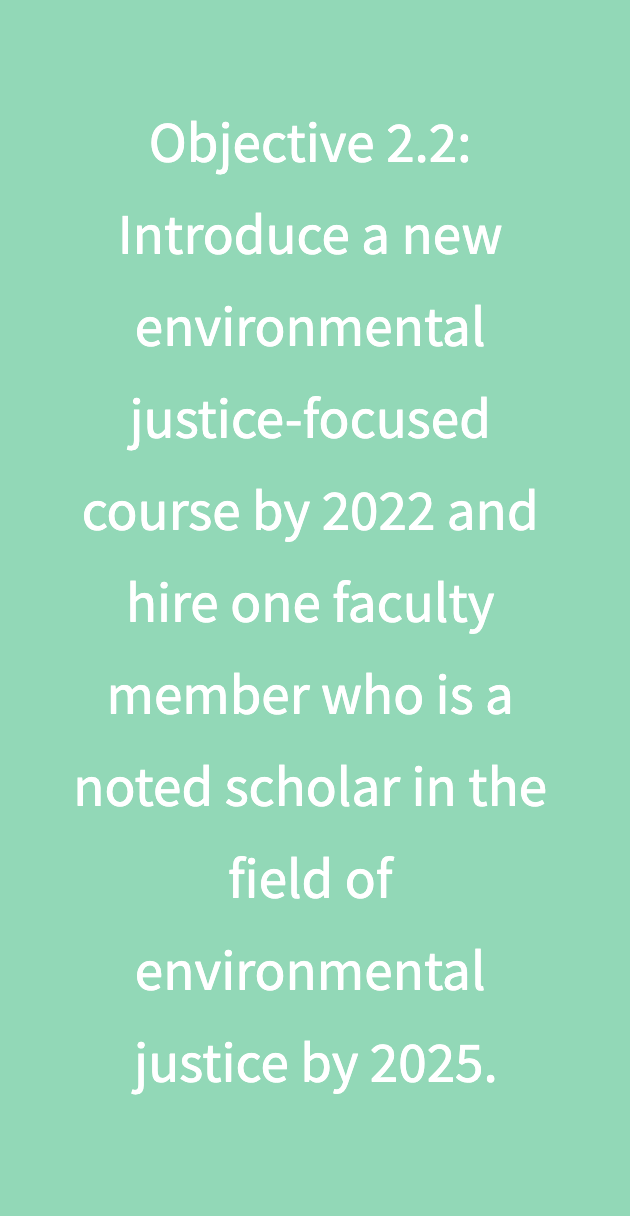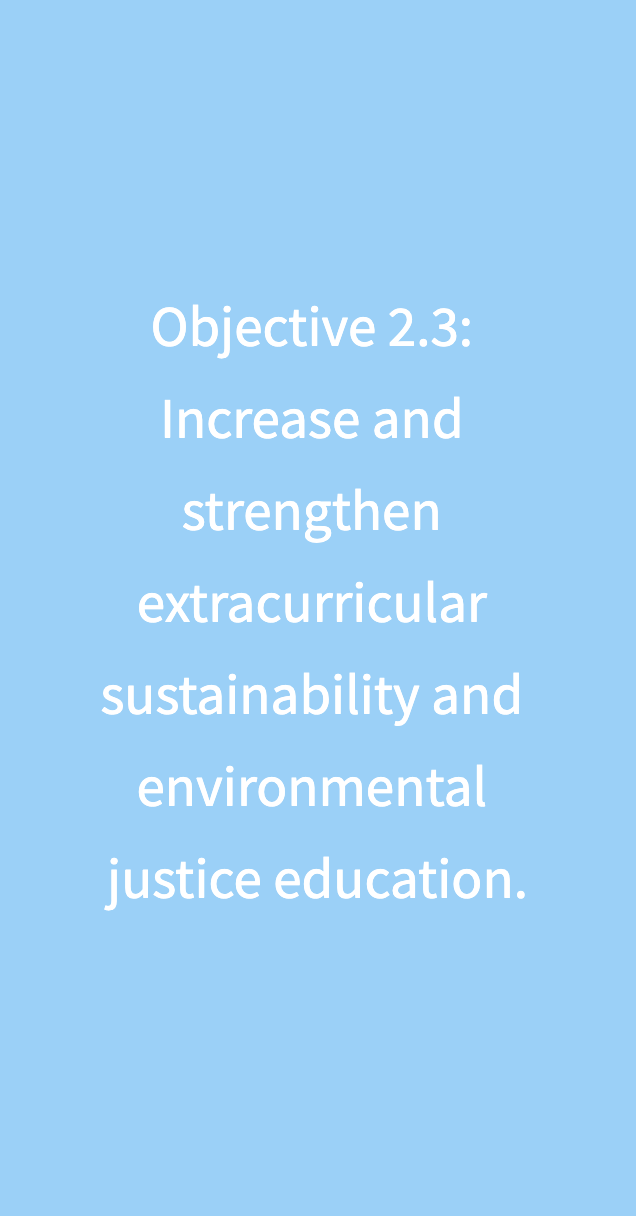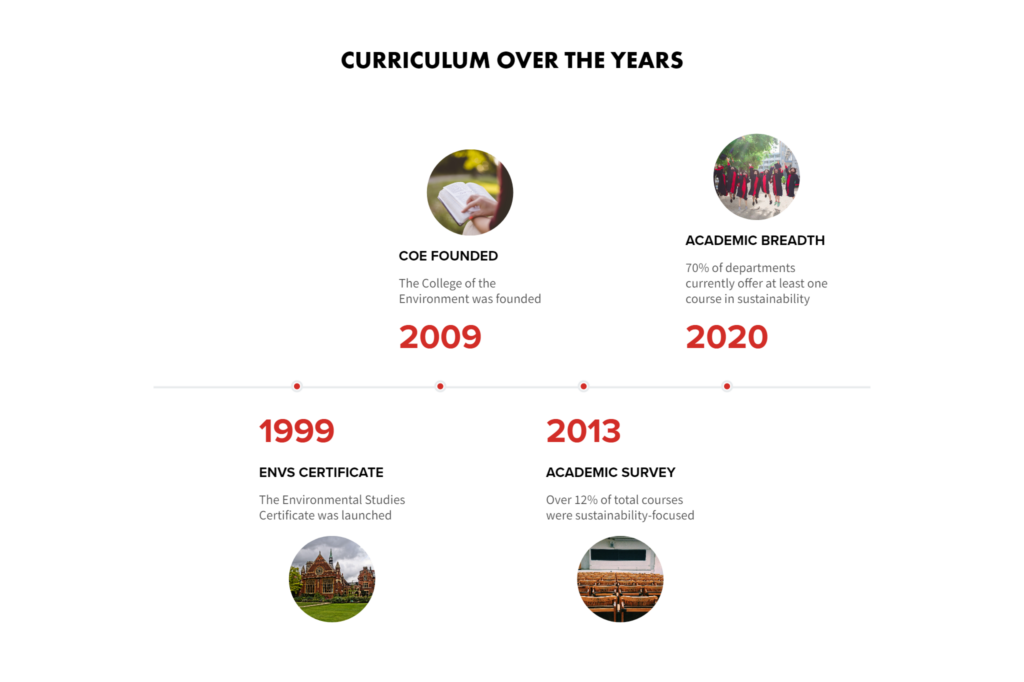Wesleyan has the potential to graduate environmental and social leaders. A primary way to achieve this is to integrate intersectional sustainability into as many academic courses as possible. Wesleyan has the opportunity to respond to global and local demands to address systemic injustices by offering courses that specifically focus on environmental justice, as well as integrating environmental justice into existing courses. Outside of the classroom, Wesleyan must strengthen and augment programming to ensure that all students have a sustainability literacy. Through all of this, Wesleyan must include the perspectives of marginalized groups, including those of students of color, first-generation students, and low-income students, in developing, teaching, and executing programming.
The following objectives move Wesleyan’s curriculum in a direction that will equip students with the necessary education and skills to become environmental and social leaders.

Sustainability should and can be discussed in relation to every discipline that is taught at Wesleyan. For this to be feasible, faculty must have support including training on sustainability and environmental justice and meetings within and between departments to discuss best practices in course integration. Sustainability and environmental justice should be integrated holistically in the way that makes the most sense for each course. We must acknowledge that current and historic barriers tend to exclude people of marginalized identities and have made the sustainability movement predominantly a movement of white people. Courses must also center the experiences of students of color, first generation, and low-income students. Wesleyan should encourage interdisciplinary faculty research on sustainability and environmental justice to further understanding of the vast intersectional nature of these topics.

Sustainability should and can be discussed in relation to every discipline that is taught at Wesleyan. For this to be feasible, faculty must have support including training on sustainability and environmental justice and meetings within and between departments to discuss best practices in course integration. Sustainability and environmental justice should be integrated holistically in the way that makes the most sense for each course. We must acknowledge that current and historic barriers tend to exclude people of marginalized identities and have made the sustainability movement predominantly a movement of white people. Courses must also center the experiences of students of color, first generation, and low-income students. Wesleyan should encourage interdisciplinary faculty research on sustainability and environmental justice to further understanding of the vast intersectional nature of these topics.

Currently on campus, a mix of events, workshops, and existing extracurricular activities are held every semester. Increasing the presence of sustainability in these extracurricular activities and learning environments will increase students’ opportunities to gain important sustainability knowledge outside the classroom. By infusing sustainability and environmental justice throughout existing activities, sustainability will reach a wider audience of students and increase access for those historically marginalized from sustainability.
